Oscars: Terry George recalls his win on Hollywood's biggest night
- Published
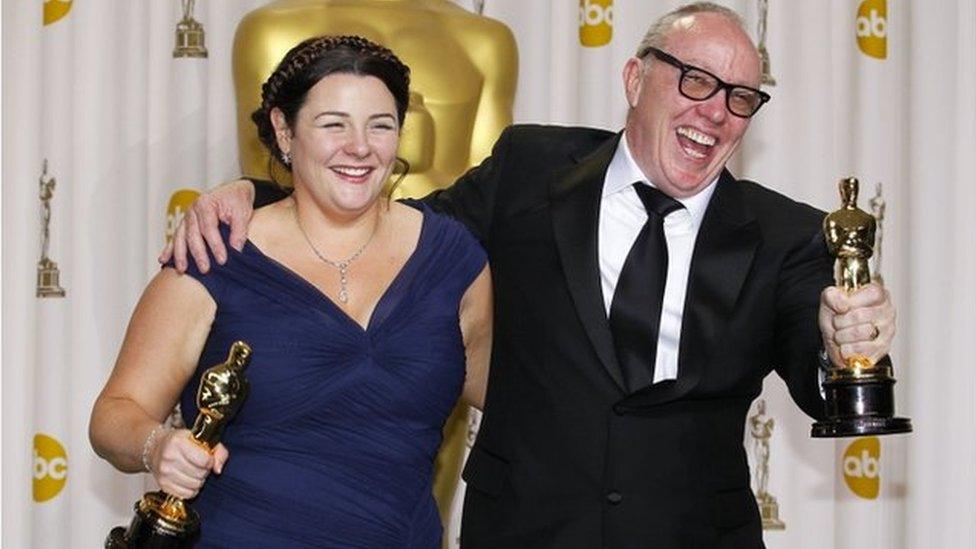
Terry George and his daughter Oorlagh after The Shore won in the live action short film category in 2012
"Am I going to be the first person to go on fire at the Oscars?"
This is not a thought you would expect to be running through the mind of someone who has just won their first Academy Award.
But when Belfast-born director Terry George began his acceptance speech in front of Hollywood's biggest names, he realised he'd left his phone on vibrate instead of silent.
George had just stepped onstage to accept the Oscar for The Shore, which won in the live action short film category in 2012.
And now his phone was buzzing non-stop - and getting hotter by the second.
"As I got up there I could feel my phone going crazy to the point where it was getting red hot against my leg," he said.
"Everyone in the world who knew me was texting me all at once, so while I'm giving this speech I'm wondering, 'is this phone going to burst into flames?'"
Thankfully, the speech went off without an apparent hitch and no hint of fire as, flanked by his daughter Oorlagh who also produced the film, he paid tribute to the people of Northern Ireland.
'Distance to the bar is crucial'
On Sunday evening, the Oscars returns for its 2019 edition.
While the show itself will go ahead without a presenter for the first time ever, there will still be the usual quota of red carpet glitz, Hollywood glamour and good old-fashioned razzamatazz.
But, according to George, the ceremony itself can be overhyped.
"It's pretty boring in truth and I say that while realising at the same time it's a great honour to be there.
"But you're sitting for four hours in the theatre and while you're interested in the overall thing, you're obviously focused on your categories, so it can drag on a bit.
"The distance from the bar to your seat is crucial," he joked.
A look at the films vying for best picture at the Academy Awards 2019
It's been seven years since George took home the coveted award on the film industry's biggest night.
In that time, George said, the film industry has changed a lot.
"Streaming services such as Netlfix and Amazon have come to dominate the world of content and in particular small independent film and TV series.
"So, if you're not engaged with them it's become more difficult to get those types of projects into the cinema.
He added: "Meanwhile Hollywood has veered towards blockbuster movies, so the market is narrowing all the time for smaller films that you would make in Ireland or the UK, by independent producers."
'No golden ladder'
Following his success at tinsel town's biggest bash, George joined an exclusive club of Irish filmmakers and actors who have won big at the Oscars.
But that didn't mean every door in Hollywood opened wide.
"When you're working in independent film, and tell the type of political humanitarian stories that I do, it helps in getting your name out there but it doesn't automatically project you into the A-list of screenwriters in Hollywood.
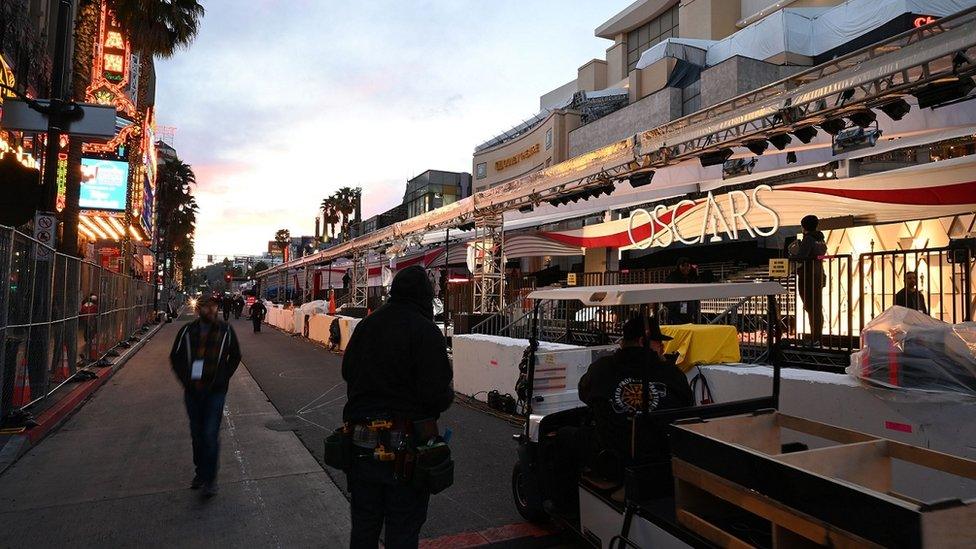
The 91st Academy Awards take place on Sunday night
"It's not a golden ladder. The stories are equally hard to sell the day after as they were before.
"Yes, it's great name recognition but I don't think it's quite the same as the actors category where you can suddenly become a hot commodity."
Despite his own experience, George said Northern Ireland was home to a "highly-skilled group of filmmakers" who often have to deal with limited budgets.
The Crush and Boogaloo and Graham, both made locally, received Oscar nominations in the past decade.
"There has been greater investment in the industry over the last 10 or 12 years and the short film section is the least expensive way to break into the film industry," he said.
Focus back home
And while George now lives in New York, his film roots have a deep connection with Northern Ireland.
He has based three of his movies on events during the Troubles: Some Mother's Son, In the Name of the Father and The Boxer.
Some of his offerings have also looked further afield.
His 2004 movie Hotel Rwanda was set during the Rwandan genocide of the 1990s and earned him an Oscar nomination for best original screenplay.
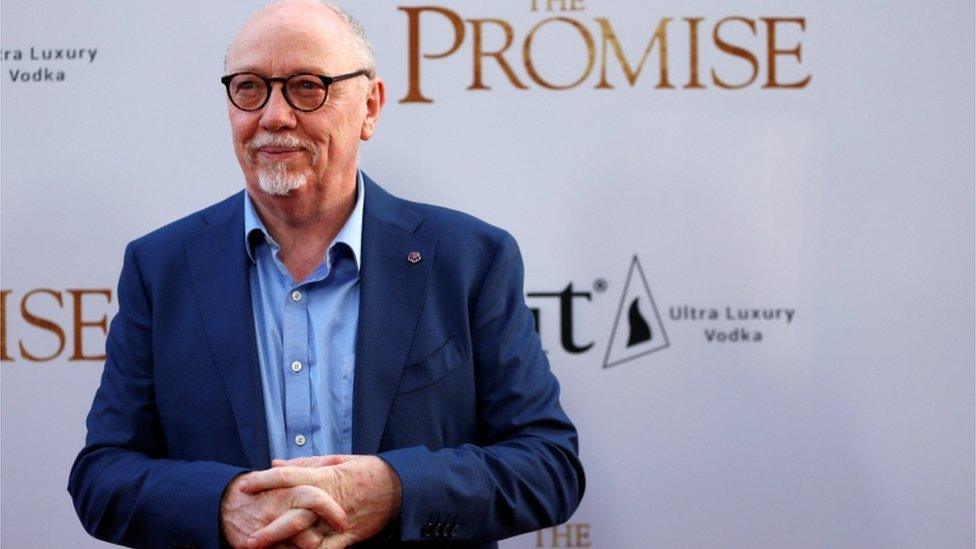
Terry George promoting his film, The Promise in Los Angeles
In 2017, he directed The Promise, starring Christian Bale and Oscar Isaac, a period film focusing on the Armenian genocide during World War One.
His next project, however, will bring the focus back to Northern Ireland.
"I'm always loath to say things because you never know whether it will get made or not, but I'm developing a TV series about the build up to the first IRA ceasefire.
"It will look at the politics that went on between the Clinton administration, the Major administration, Albert Reynolds, the IRA, Paisley, all of that."
George also has ambitions to turn the story of The Shore into a feature length film.
He said: "It's all about money and how you raise the funds and if you can get a distributor.
"You just try to keep all the balls in the air and see what sticks to the wall."
In the meantime, George said he'll be keeping a close eye on this year's Oscars, a ceremony he watches every year with interest - and, possibly, his phone on silent.
- Published20 February 2019
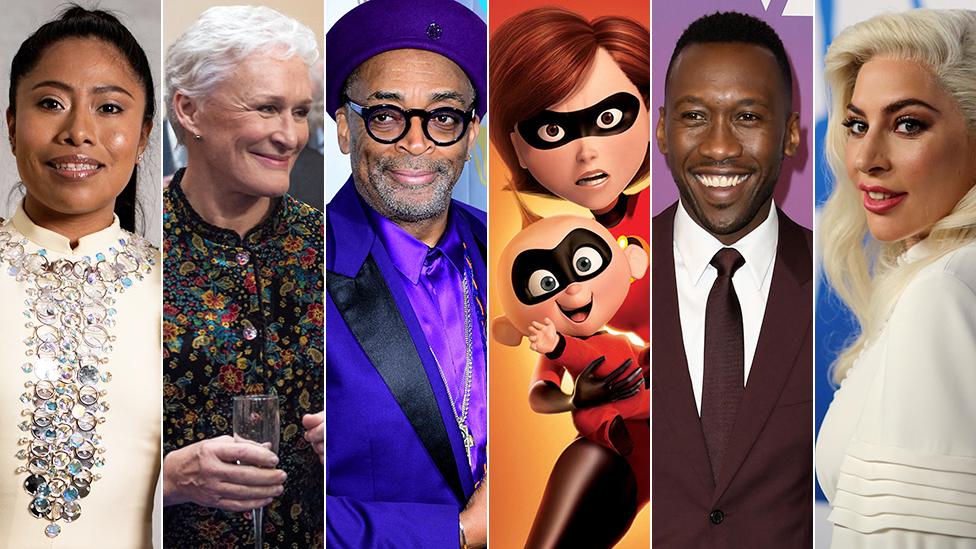
- Published20 February 2019
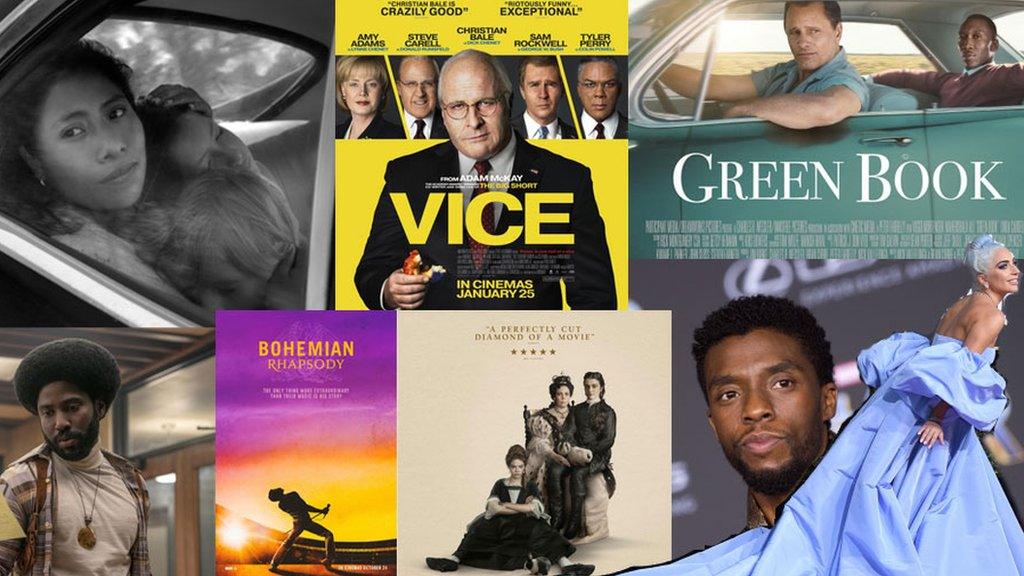
- Published25 February 2019
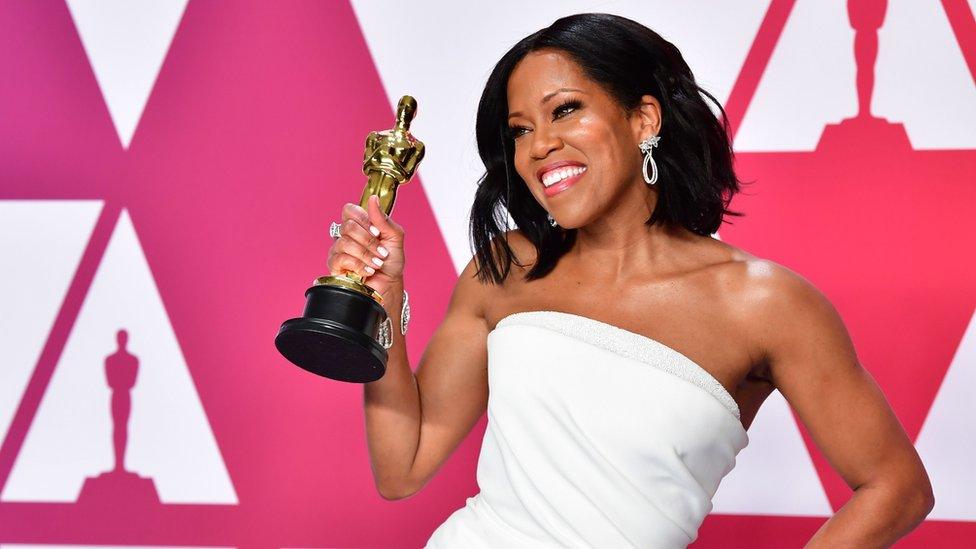
- Published23 April 2017
